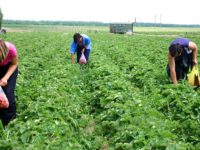The Fair Work Ombudsman has conducted surprise inspections of agriculture businesses in the regions of Mornington Peninsula and the Yarra Valley to check if workers are getting the right pay.
Fair Work Inspectors have visited about 20 agriculture businesses, such as farms, vineyards and labour hire operators, which were chosen based on reports of possible underpayments committed against their workers or that they were employing visa holders who are often vulnerable to exploitation due to a lack of knowledge of workplace laws or an unwillingness to speak up.
Inspectors have been on alert for low rates of pay that breach the Horticulture, Pastoral or the Wine Industry Award (where applicable), including pay relating to piece rates; unauthorised deductions from wages; potential non-payment of overtime and inadequate breaks; payslip and record-keeping breaches; and other potential violations.
Acting Fair Work Ombudsman Michael Campbell said that continuing to boost compliance in the agriculture sector employers remained a priority for the agency.
“Where our intelligence says there is a high risk of non-compliance with workplace laws, we proactively conduct audits to ensure workers are receiving their lawful entitlements,” Campbell said. “We have been working constructively with agriculture employers and employees in the Mornington Peninsula and the Yarra Valley regions to check compliance rates. This includes assisting employers understand their legal responsibilities, such as proper record-keeping – the bedrock of compliance – and the minimum wage guarantee for pieceworkers.”
“Where we uncover any non-compliance from these inspections, we will ensure workers receive the entitlements owed to them” Campbell added. This can include taking enforcement action where appropriate. The agriculture sector commonly employs vulnerable workers such as backpackers and other migrants, who may have limited English skills, be unaware of their rights, or be unwilling to speak up. Visa holders should remember they have the same workplace rights as all other workers.”
The inspections are part of the FWO’s Agriculture Strategy, which began in December 2021 and has targeted more than 450 businesses in 15 ‘hot spot’ regions of Australia where there are identified high risks of non-compliance.
Investigations continue and results will be published at a later date.















